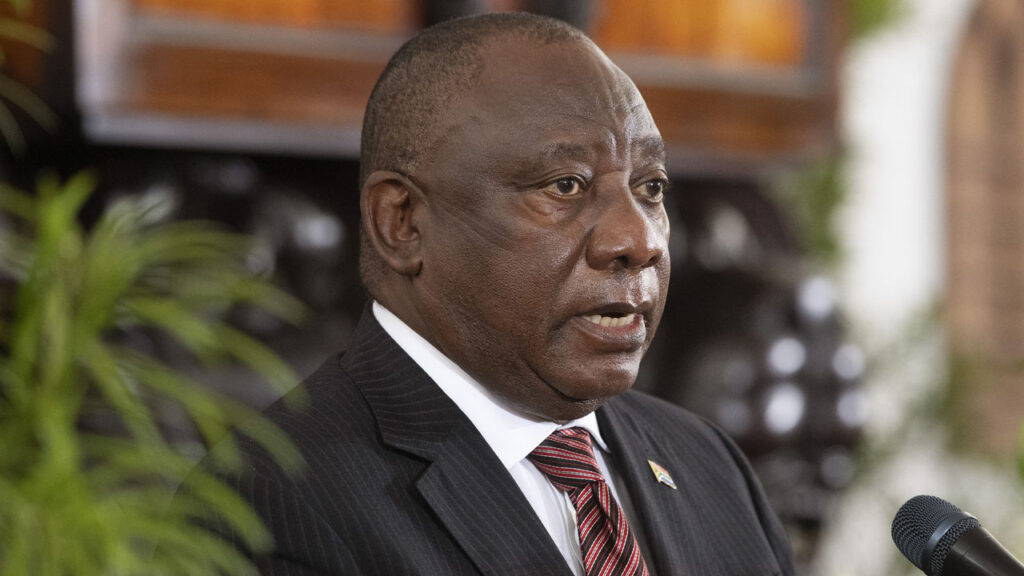
Pay rise for judicial officials is a welcome development, however, President Bola Tinubu dictating how much judges should take, leading to an 800 per cent increment in their salaries is discriminatory, antithetical to the principles of separation of powers and judicial impartiality, and could not have been in the national interest.
As Nigerian workers wearily await a review of the national minimum wage, the Federal Government, in the meantime, is prioritising the welfare of judicial officers. It would be recalled that the Revenue Mobilisation Allocation and Fiscal Commission (RMAFC) had proposed a 114 per cent increase in the remuneration of judges. However, rejecting the proposal, Tinubu directed RMAFC “to come up with a more realistic rate that will reflect the present economic reality.” Taking further action, the President asked the National Assembly to consider and pass a new bill seeking to provide new salaries and allowances for judicial officers nationwide.
Consequently, the House of Representatives recently passed an executive bill, at the third reading, which seeks to amend Certain Political, Public, and Judicial Office Holders (Salaries and Allowances, etc) Act No. 6, 2002 (as amended) by deleting Section 2(b), Part II of the Schedule to the Act and any other provisions relating to judicial office holders. By the provisions of the bill, judges across the federation are to enjoy over 800 per cent pay rise and also enjoy enhanced allowances, fringe benefits, and severance gratuity. When signed into law by the President, the legislation will take effect from January 1, 2024.
The development has received public commendation as the poor funding of the judiciary has been a protracted issue. Many opine that the proposed increment will further stimulate judges to work harder and make them less susceptible to corruption. Undoubtedly, a well-remunerated judicial officer is more inclined to be incorruptible than a poorly compensated one. Indeed, judges should not be in a position where they must worry about their welfare as this can impact justice administration adversely. In the words of the late Justice Mustapha Akanbi: “A good judgment flows from a mind that is not bogged by the thought of – where do I get my next meal? Or where do I get the money to pay my son’s school fees? Poor conditions of service disturb the mind. It is an obstacle to clear and positive thinking.”
Sadly, the salaries and allowances of judicial officers have been stagnant for the past 16 years despite the ballooning inflation in the country. Last year, Justice Dattijo Muhammad (rtd) decried the inadequate funding of the judiciary which to him has emasculated the third arm of government. He further lamented the lopsided salary structure of the Supreme Court that appears tilted in favour of senior administrative staff. Describing the disparity as “unjust and embarrassing,” Muhammad wondered why the chief registrar of the apex court would earn more than all the justices therein, including the CJN. Calling for a remedial restructuring, he warned that “a society rots too easily when institutional defects are ignored.”
Earlier in 2022, Justice Osatohanmwen Obaseki-Osaghae, of the National Industrial Court, Abuja, had ordered the Federal Government to put machinery in place for the immediate review of the “abysmally low and embarrassing” salaries and allowances of the judicial officers. Admittedly, it is for judicial officers who occupy a respected pedestal in the order of national precedence to practically plead for better pay. Unarguably, the issue of poor funding is a clog in the wheel of justice, and until adequately resolved, the judiciary cannot be properly reformed.
However, an 800 per cent increment at a time of national austerity is not only excessive but equally insensitive to other public officers who are also making valuable contributions to nation-building. Why the discrimination? Every Nigerian worker is relevant in the value chain and equally confronted with the prevailing economic austerity. Besides, the primary purpose of governance is for the welfare of the generality of the people and not for a select few. Noteworthy is that in March 2019, when the minimum wage of public servants was increased to N30,000, inflation was 11.25 per cent. The minimum wage remains N30, 000 but inflation as of March 2024 had skyrocketed to 33.20 per cent!
Nigeria is financially handicapped. Accordingly, an over-bloated judicial salary will further put the country in dire straits. The Federal Government failed to avert its mind to this stark fact before arriving at the proposed rate. It is submitted that the salaries of judges should be fairly reviewed in tandem with the current economic reality of the country. Recall that Muhammad had insinuated that corruption in the judiciary is partly responsible for the poor working conditions of judicial officers. Accusing the heads of courts of misappropriation of budgetary allocations, he added thus:
“Notwithstanding the phenomenal increases in the sum appropriated and released to the judiciary, the welfare and quality of service the judiciary renders continued to decline.” Impliedly, the chief administrators of the judiciary are also complicit in the poor welfare of judges.
Curiously, why is Mr. President interested in what judges earn? His interest in this issue is quite intriguing. While the National Assembly has powers to enact laws guiding the remuneration of judicial officers, and the RMFAC is bound to determine such amount and charge the same to the consolidated account from which judicial officers are paid, the President has no constitutional or statutory role to play at all. There has been a series of speculations on the unholy alliance between the executive and judicial organs of government on pending court cases. The President should refrain from doing anything which fuels such speculations.
It bears restating that it does not lie in the mouth of the President to dictate the salaries of judges. On the contrary, his incursion into the financial affairs of the judiciary offends the principles of separation of powers and judicial impartiality. For a judiciary that is battling integrity and reputational controversy, especially over political and electoral matters, it is most inappropriate for the President to champion judicial salary review. After all, he who pays the piper dictates the tune. The President’s conduct is a political move devoid of nationalistic considerations. As a co-equal arm of government, the judiciary should be financially autonomous and independent of the other arms.
It is asserted that the proposed over 800 per cent increment should be jettisoned due to its far-reaching implications. Also, the admonition of Mr. President to Nigerians to tighten their seat belts in the face of the harsh economic times should cut across the board. The cost of governance should be holistically cut down. To this end, judges should be willing to accept moderately improved emoluments, and elected officers should likewise offer to slash their salaries and jumbo allowances as part of their sacrifice as leaders.
Furthermore, the salary structure of the public sector should be harmonised to reflect equity and equality. It is illogical for officials of some public agencies, such as the Central Bank of Nigeria, and Nigerian National Petroleum Company Limited to be entitled to humongous salaries, while those in the health, educational, security, and other critical sectors of the economy receive pittance.













